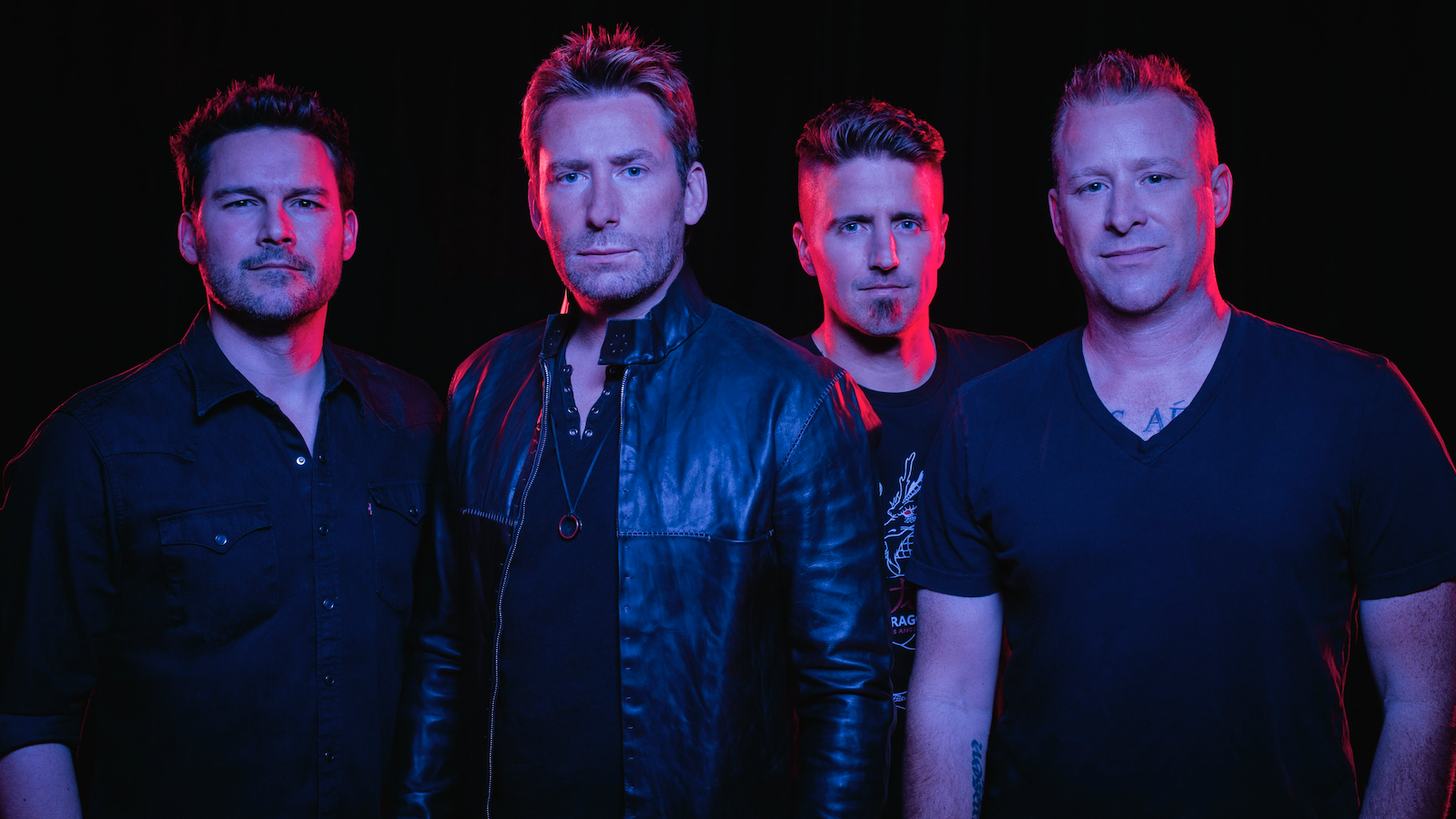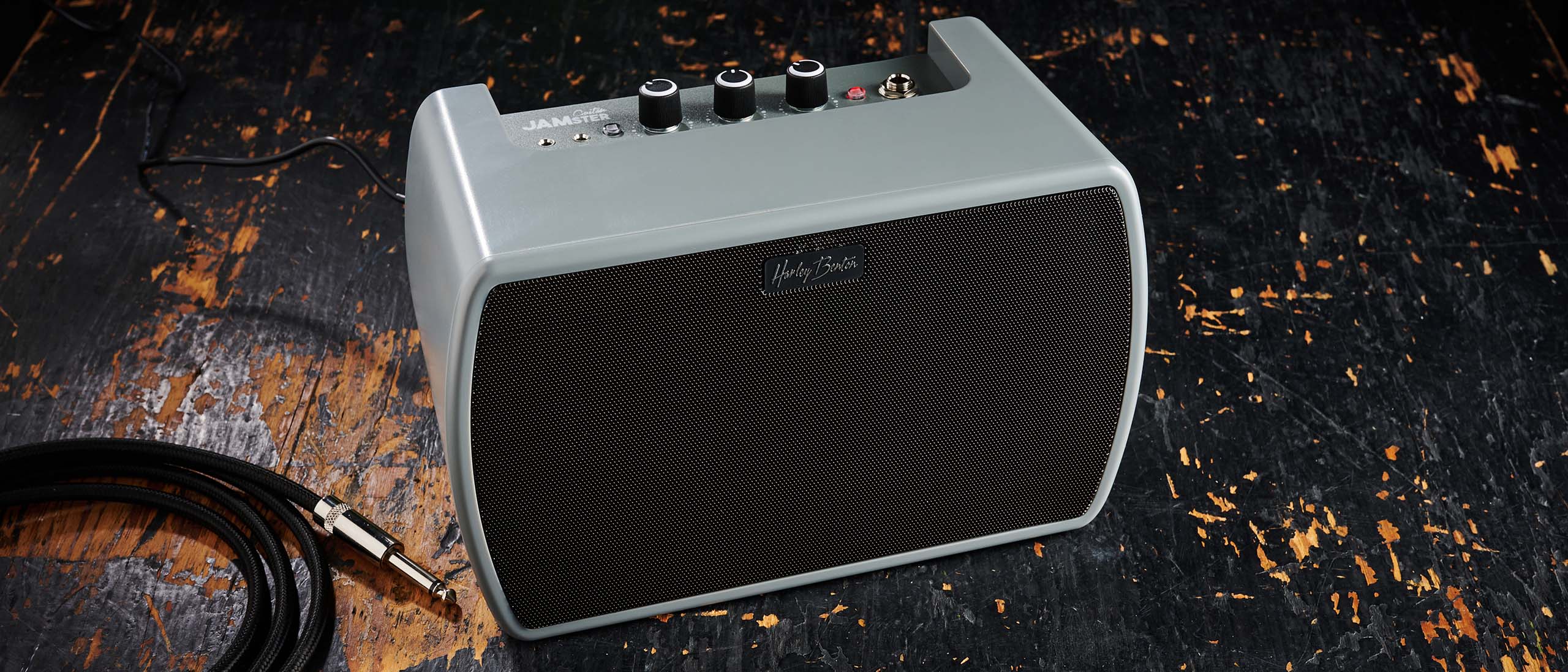Nickelback: "If you don’t leave a little bit of your sanity behind when you make an album, you haven’t dug deep enough"
Look at this photograph… Okay, now read this interview, where Nickelback bassist Mike Kroeger looks back on 15 years of the iconic All The Right Reasons

Love ‘em or hate ‘em, the cultural impact of Canadian crunch-pop quartet Nickelback is simply irrefutable. It started out of desperation: frontman Chad Kroeger was working a dead-end job at a Starbucks (where prices ending in ‘.99’ meant he’d often hand customers a nickel back in change – so now you know where that name comes from), and recorded the band’s debut EP on half a $4,000 loan from his stepfather (the other half went, naturally, to his shroom dealer).
The investment quite obviously paid off, and by the turn of the 21st century, Nickelback were packing stadiums full of radio-rock fans young and old alike in any city that would host them. And in 2005 – defying the odds waged against them by their own team – Nickelback would release one of the most successful albums in rock history with All The Right Reasons. And one glance at the tracklist makes it clear just why: “Photograph”, “Far Away”, “Rockstar”, “Animals”… It’s absolutely jam-packed (pun intended) with setlist staples.
15 years later, bassist Mike Kroeger looks back on the album with a fond reverence – which makes sense when you learn how little faith Roadrunner Records had towards it at the time of release, before it went on to become one of a very select few diamond-certified rock LPs. To celebrate the anniversary, the band have released a special expanded edition of All The Right Reasons featuring rarities, live performances and a full remaster of the original album mix.
He also gifted us with a few minutes of his time to help crank up the nostalgia machine. Shall we dive right in?
Looking back on this record as the artist and the music lover you are today, how do you feel about it? Do you think it’s aged well?
Well, I suppose I do. The initial response to the album was very good, and the tour went forever which is usually a good sign – if you go on the road and never come home, that usually means you’ve done something right. It was two years on the road with multiple trips to virtually every inhabited continent, and it was fantastic.
And y’know, it was funny because after the success that we had with Silver Side Up, with the song “How You Remind Me” and all that, everybody was saying, “Okay guys, it’s pretty normal now that your career is going to wind down.” And then we did another record, The Long Road, and that was largely considered to be a failure because it only sold five million copies. Such a big failure, right!?
And then we came out with All The Right Reasons, and that gave us an even bigger resurgence – it turned out to be our biggest record to date!
Get The Pick Newsletter
All the latest guitar news, interviews, lessons, reviews, deals and more, direct to your inbox!
A good handful of the most iconic Nickelback songs are on this record. What was that writing process like? Were the ideas just pouring out of you?
It was productive, but there were definitely some hard times. Creativity is like that, y’know? Sometimes it flows freely, and sometimes you’ve gotta kind of fight for it a little bit – and fight with it a little bit. But overall, it was a great experience. It was intense and it was a lot of work, but we came out of it with a great album. It seems that if you don’t leave a little bit of your sanity behind when you make an album, you haven’t dug deep enough. And we most definitely left some of our sanity behind on All The Right Reasons.
You guys were able to use a guitar part from the late, great Dimebag Darrell on “Side Of A Bullet”. How did that happen?
We’d known the Pantera guys since a really early time in our career. They were fans of ours from the beginning, and we would always see them out on the road or whenever we would go through Dallas; they would come out and ply us with alcohol. It was always fun to be around those guys. They were our brothers. And then when Dime was murdered, we wanted to pay tribute to him. We were able to get some of his unused solos and a few other bits of his playing that we would actually lay into the track… It was a really special thing for us.
The guy was a legend, as well as his brother – that whole band was, y’know? They didn’t give a f***. I mean, if you know anything about Pantera, you know they didn’t give a f***. They were just doing what they did. A lot of people didn’t like the fact that they were friends with us, or fans of our music – but the metal world can be a little intense to its own, y’know? So it was just really cool that they didn’t care about that, and they just wanted to be friends with us because they liked what we did.
There is nothing more metal than being friends with a band like Nickelback.
I remember the first time I met those guys, we were in a limo somewhere in Dallas, a little bit drunk and listening to Christina Aguilera. And I remember Vinnie just going crazy, saying how he thought it was the best shit ever. I was just sitting there going, “What am I witnessing right now!?” They were really just fans of music – they didn’t really let genres or personalities get in the way of what they liked. They just liked what they liked, and they appreciated what they appreciated. And like you say, that’s so f***ing metal.
Speaking of which, last year you noted that you wanted to put a full-on metal record out. Is that still the goal?
I know the interview you’re talking about – that was an interesting one, because there was a little bit of context manipulation going on there. That’s the same article, I believe, where the person wrote that I wanted Nickelback to make a Slayer cover album – which is not really what I said. What I said was that I would like to make a Slayer cover album – y’know, me, Mike, not the band Nickelback, but just myself.
And the same kind of goes for a heavy metal record; [2017’s] Feed The Machine is about as consistently heavy as we’re ever going to get. There was that goal there to make a heavier album, which we obviously did – but y’know, we’re looking to the next thing now. I do still want to make a metal album for myself, though. That’s certainly where I live, and that’s where I’m the most comfortable as a musician.
What I love most about Nickelback is that you’ve got a very catchy and approachable, pop-oriented rock sound, but there is this underlying energy and grit that feels very much in line with what you’d expect from a metal band. Are you always trying to find new ways to inject a bit of that influence into your songwriting?
We all come from different places, musically, but the one thing all four of us have in common is that we all have our roots in heavy metal. So it’s not that hard for any one of us to coax out some heavier shit, y’know? We all grew up on Metallica, Megadeth, Anthrax, Slayer… The boys are a little lighter on the Slayer than I am, but they’re certainly one of my favourites to glean some influence from. I’m really on a Slayer jag right now, actually, just going through their whole catalogue again.

Ellie Robinson is an Australian writer, editor and dog enthusiast with a keen ear for pop-rock and a keen tongue for actual Pop Rocks. Her bylines include music rag staples like NME, BLUNT, Mixdown and, of course, Australian Guitar (where she also serves as Editor-at-Large), but also less expected fare like TV Soap and Snowboarding Australia. Her go-to guitar is a Fender Player Tele, which, controversially, she only picked up after she'd joined the team at Australian Guitar. Before then, Ellie was a keyboardist – thankfully, the AG crew helped her see the light…
“The Beyoncé effect is, in fact, real. I got a lot of traffic just from people checking the liner notes”: With three Grammy wins and plaudits from John Mayer, Justus West is one of modern session guitar’s MVPs – but it hasn’t been an easy ride
“You might laugh a little. The post office shipped your guitar to Jim Root”: This metal fan ordered a new guitar from Sweetwater – but it ended up with the Slipknot guitarist



![John Mayer and Bob Weir [left] of Dead & Company photographed against a grey background. Mayer wears a blue overshirt and has his signature Silver Sky on his shoulder. Weir wears grey and a bolo tie.](https://cdn.mos.cms.futurecdn.net/C6niSAybzVCHoYcpJ8ZZgE.jpg)

![A black-and-white action shot of Sergeant Thunderhoof perform live: [from left] Mark Sayer, Dan Flitcroft, Jim Camp and Josh Gallop](https://cdn.mos.cms.futurecdn.net/am3UhJbsxAE239XRRZ8zC8.jpg)




